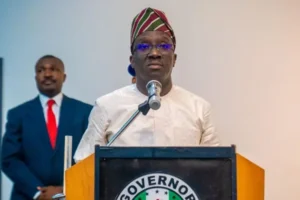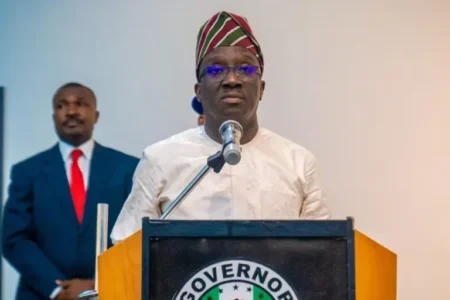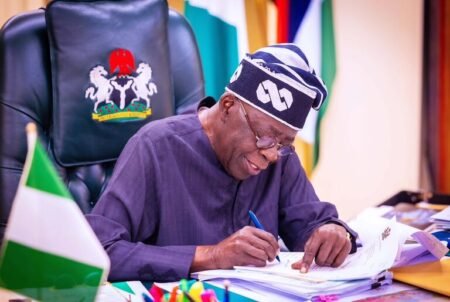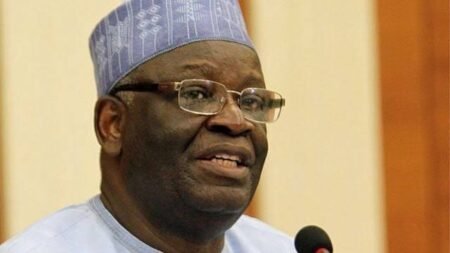The Economic and Financial Crimes Commission (EFCC) has announced plans to appeal a court ruling that acquitted former Ekiti State governor, Ayodele Fayose, of multiple counts of money laundering and fraud.
Delivering judgment on a no-case submission on Wednesday, Justice Chukwujekwu Aneke ruled that the EFCC failed to establish a prima facie case to justify a full defence from the ex-governor.
Fayose and his company, Spotless Investment Limited, had been facing an 11-count charge bordering on the alleged laundering of ₦6.9 billion during his tenure as governor. Prosecutors claimed he received ₦1.2 billion in campaign funds for the 2014 election and took $5 million in cash from former minister Musiliu Obanikoro bypassing financial institutions in violation of money laundering laws.
The EFCC further alleged that the ex-governor used over ₦1.6 billion to purchase high-end properties through proxies and shell companies like De Privateer Ltd and Still Earth Ltd.
However, Fayose’s lead counsel, Kanu Agabi (SAN), argued that the EFCC’s case was riddled with gaps. He pointed out that the key intermediary, Abiodun Agbele, was not charged, weakening the conspiracy claim.
“The predicate offences do not hold water. No co-conspirator was charged,” Agabi submitted.
Olalekan Ojo, counsel to Spotless Investment Ltd, also filed a separate no-case application, noting inconsistencies in prosecution testimonies — especially that of Obanikoro, who confirmed no direct communication between Fayose and former NSA, Sambo Dasuki.
But EFCC prosecutor Rotimi Jacobs countered, questioning why Fayose chose to transact through third parties if the funds were legitimate. He referenced EFCC investigator Abubakar Madaki’s statement that Fayose used proxies to buy properties later disowned by the said individuals even though Fayose allegedly admitted ownership.
“If the money was clean, why not buy the properties in his name?” Jacobs queried.
Despite these arguments, the court upheld the no-case submission, freeing Fayose from the charges for now.
Jacobs confirmed that the EFCC will obtain a certified copy of the judgment and file an appeal.











